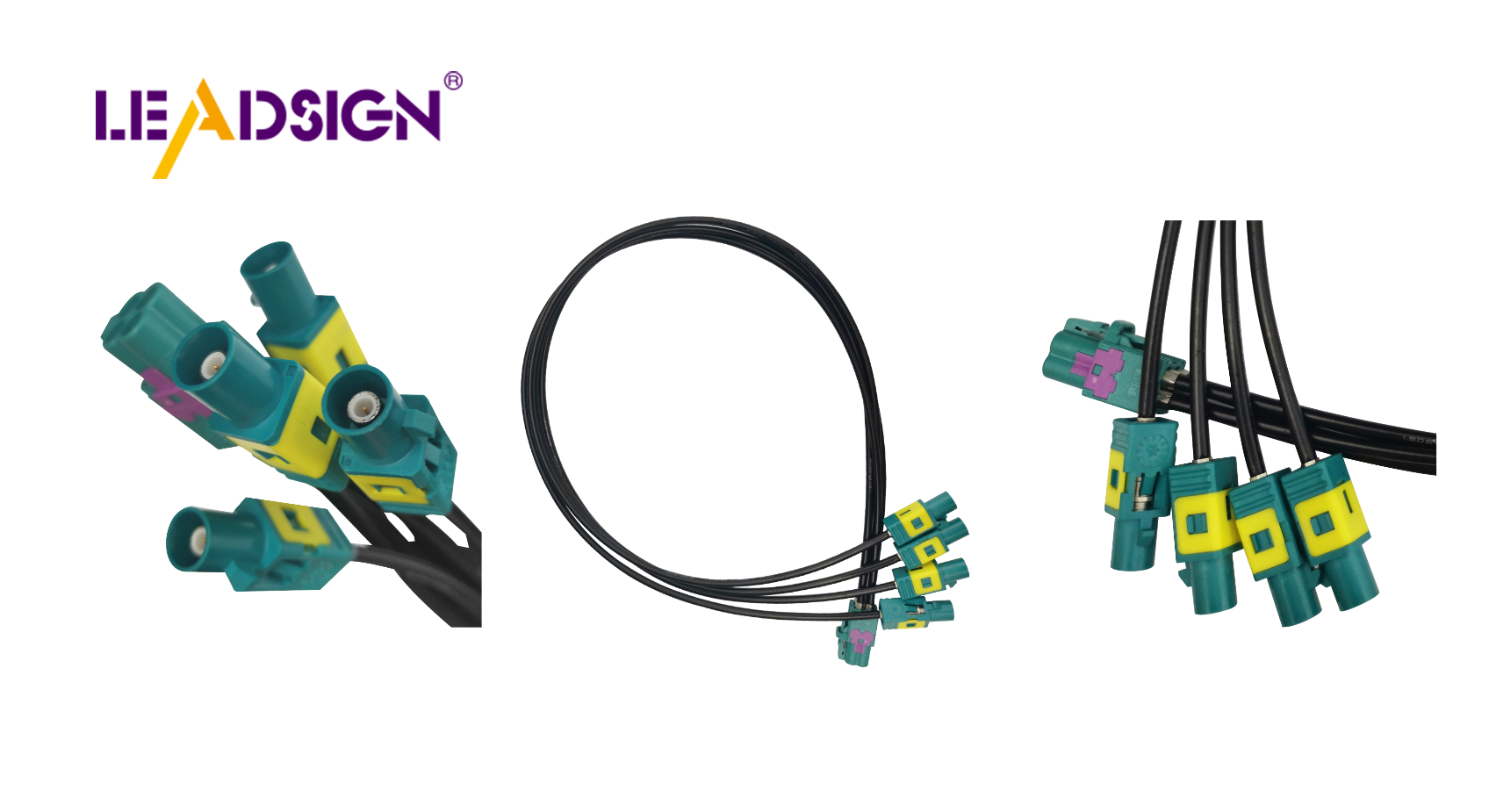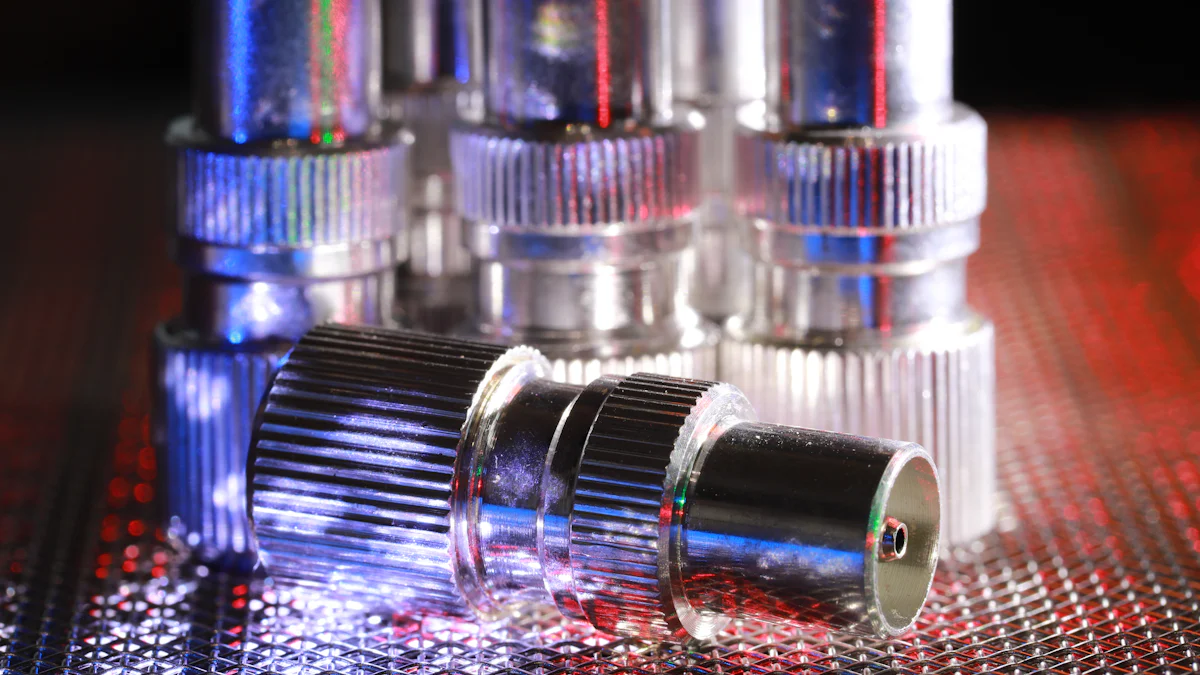Expert Guide to Choosing Mini Coaxial Cables

Mini coaxial cables are important in today's technology. You see them in cars and gadgets. These cables help send data quickly and connect devices. When picking a mini coaxial cable, think about some things. Look at impedance, frequency range, and how fast they send data. Knowing these helps you choose well for your needs. This ensures the best performance for what you want.
Understanding Mini Coaxial Cables

Mini coaxial cables are very important in technology. To choose the right one, you need to know their main features and uses.
Key Specifications of Mini Coaxial Cables
Impedance and Frequency Range
When picking a mini coaxial cable, think about its impedance and frequency range. Impedance is measured in ohms. It affects how signals move through the cable. Common values are 50 and 75 ohms. These numbers show if the cable works with different devices. For example, Miniature 36 AWG 50 ohm Coaxial Cable is light and bendy, so it fits many uses. The frequency range shows what signal frequencies the cable can handle. A bigger frequency range means more ways to use it.
Data Transmission Rates
Data transmission rates are also important. They tell how fast data moves through the cable. High data rates are needed for quick and reliable data transfer. For instance, the Black Dragon 75 Ohm Mini Coax Digital Cable is made for fast digital audio uses. It makes sure data moves well, which keeps sound quality good in audio and video systems.
Applications of Mini Coaxial Cables
Automotive Electronics
In cars, mini coaxial cables are a must-have. They link parts inside vehicles like music systems and maps units. These cables need to handle tough conditions like heat changes and shaking. The RF Coaxial Cables resist EMI well, making them great for cars. They work reliably even when things get rough.
Consumer Electronics
Mini coaxial cables are common in home electronics too. You see them in TVs, game consoles, and home theaters. They send high-quality sound and pictures, so people like using them a lot. The Coaxial Cables install easily next to metal without losing power, which helps in small gadgets where space is tight.
By knowing these features and uses, you can pick the best mini coaxial cable for your needs. Whether it's for car systems or home electronics, choosing the right cable gives you top performance and trustworthiness.
Things to Think About When Picking Mini Coaxial Cables
When you pick a mini coaxial cable, think about some key things. These help the cable work well for what you need.
Cable Parts and Build
The parts and build of a mini coaxial cable are very important. Knowing them helps you choose wisely.
Wires and Covering
The main wire in a mini coaxial cable sends radio signals. This wire is usually metal, which sends signals well. Around the wire is an insulator. This keeps space between the wire and shield layer all along the cable. It stops signals from touching and canceling out. Most connectors today use special plastics like PTFE, which support the center wire.
Shielding Methods
Shielding is also key in making mini coaxial cables. The metal shield stops signal loss and blocks outside interference. It works with the main wire to keep signals safe. A plastic cover on the cable adds more protection inside it. This build makes sure the cable works well anywhere.
How Well It Works and Lasts
How well it works and lasts are big things to check when picking a mini coaxial cable.
Signal Quality
Good signal quality means data moves fast and right. A strong build with good shielding keeps signals clear. Picking a strong-built cable cuts down on signal problems.
Toughness Against Weather
Toughness against weather is also important. Mini coaxial cables often face hard conditions like heat or shaking. A tough cable handles these without breaking down over time.
By thinking about these points, you can find the best mini coaxial cable for your use. Whether it's for cars or home gadgets, knowing about parts, build, how well it works, and toughness helps you decide smartly.
Comparing Products by Price
When picking a mini coaxial cable, price matters. There are choices for all budgets with different features. Let's look at budget, mid-range, and high-end options.
Budget-Friendly Choices
Main Features
Cheap mini coaxial cables have basic features. They work for simple tasks. These cables usually have standard lengths and are easy to set up.
Good and Bad Points
Good:
Low cost makes them easy to buy.
Good for simple uses like home audio or basic gadgets.
Bad:
Limited range may not support fast data.
Basic shielding might cause some signal problems.
Mid-Range Picks
Main Features
Mid-range cables balance cost and quality. They often have better shielding and faster data rates. These are great for users needing good performance without high costs.
Good and Bad Points
Good:
Better shielding cuts down on signal loss.
Faster data rates help with gaming consoles and home theaters.
Bad:
Cost more than budget ones.
Might lack advanced features of high-end cables.
High-End Options
Main Features
High-end cables give the best performance. They use top materials and have great impedance and frequency range. Made for pros and high-performance systems.
Good and Bad Points
Good:
Great signal quality means clear, fast data.
Strong build lasts in tough conditions.
Bad:
Higher price might not fit all budgets.
Too much for simple tasks where top performance isn't needed.
By knowing the differences in cable prices, you can choose smartly based on your needs and money. Whether you pick budget, mid-range, or high-end, understanding each helps you decide well.
In this guide, you learned how to pick mini coaxial cables. Think about things like impedance and frequency range. Also, consider using them in cars and home electronics.
See Also
Exploring the Significance of FAKRA Coaxial Cable in Cars
Harnessing the Strength of FAKRA Coaxial Cable Connections
Unlocking the Potential of FAKRA Coaxial Cable
Maximizing the Flexibility and Advantages of FAKRA Coaxial Cable Connections

